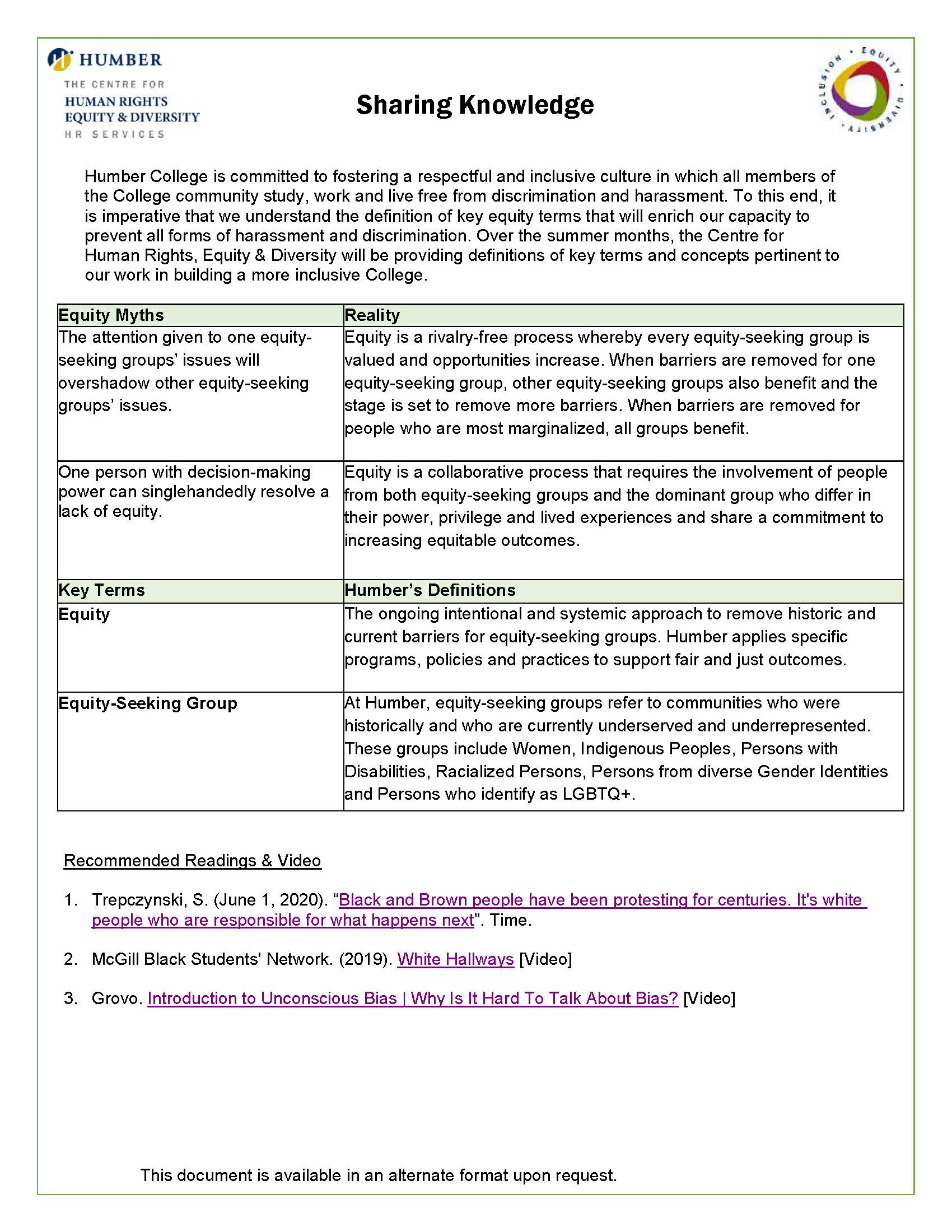![]() Sharing Knowledge
Sharing Knowledge
Humber College is committed to fostering a respectful and inclusive culture in which all members of the College community study, work and live free from discrimination and harassment. To this end, it is imperative that we understand the definition of key equity terms that will enrich our capacity to prevent all forms of harassment and discrimination. Over the summer months, the Centre for Human Rights, Equity & Diversity will be providing definitions of key terms and concepts pertinent to our work in building a more inclusive College.
| Equity Myths | Reality |
|---|---|
|
The attention given to one equity-seeking groups’ issues will overshadow other equity-seeking groups’ issues. |
Equity is a rivalry-free process whereby every equity-seeking group is valued and opportunities increase. When barriers are removed for one equity-seeking group, other equity-seeking groups also benefit and the stage is set to remove more barriers. When barriers are removed for people who are most marginalized, all groups benefit. |
|
One person with decision-making power can singlehandedly resolve a lack of equity. |
Equity is a collaborative process that requires the involvement of people from both equity-seeking groups and the dominant group who differ in their power, privilege and lived experiences and share a commitment to increasing equitable outcomes. |
| Key Terms | Humber’s Definitions |
| Equity | The ongoing intentional and systemic approach to remove historic and current barriers for equity-seeking groups. Humber applies specific programs, policies and practices to support fair and just outcomes. |
| Equity-Seeking Group | At Humber, equity-seeking groups refer to communities who were historically and who are currently underserved and underrepresented. These groups include Women, Indigenous Peoples, Persons with Disabilities, Racialized Persons, Persons from diverse Gender Identities and Persons who identify as LGBTQ+. |
|
Recommended Readings & Video
|
|

